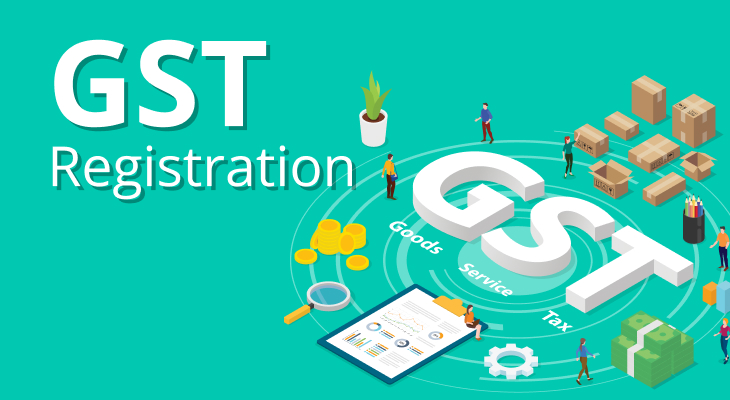Comprehensive Overview to the very best GST Registration Services in Singapore
Comprehensive Overview to the very best GST Registration Services in Singapore
Blog Article
From Beginning To End: The Ultimate Roadmap to GST Enrollment for Companies Seeking Financial Stability
Browsing the complexities of Item and Services Tax Obligation (GST) enrollment is an important action for services striving for financial security. Breaking down the roadmap right into manageable actions can streamline the registration journey for organizations looking to boost their economic standing.
Understanding GST Fundamentals
Digging into the essential principles of Product and Provider Tax (GST) is vital for getting a detailed understanding of its ramifications on businesses and the economic climate. GST is a value-added tax imposed on most items and solutions for domestic consumption. It has actually changed multiple indirect tax obligations that existed in the pre-GST age, simplifying the tax structure and enhancing ease of doing organization in India. Under the GST system, both services and products are taxed at a details price, which is identified based on their classification. If their yearly turn over exceeds the threshold limit set by the federal government, businesses are called for to register for GST. Input Tax Obligation Credit (ITC) is a significant feature of GST, permitting businesses to assert credit history for tax obligations paid on inputs, minimizing the overall tax obligation problem. Recognizing the essentials of GST is critical for services to abide by tax policies, manage their finances efficiently, and add to the nation's economic growth by joining a clear tax system.
Eligibility Requirements for Enrollment
To register for GST, businesses must satisfy specific eligibility requirements established by the government. The key qualification need is that any kind of company entailed in the supply of products or solutions with a yearly aggregate turn over above the threshold limit set by the authorities should sign up for GST. As of the existing policies, the threshold limit for GST registration is an annual accumulation turn over of 40 lakhs for organizations operating within a state, other than for unique group states where the restriction is 20 lakhs. Furthermore, certain companies are called for to register for GST regardless of their turnover, such as interstate vendors, casual taxed individuals, and businesses liable to pay tax obligation under the reverse fee mechanism. It is essential for businesses to completely evaluate their turn over and transaction kinds to determine their GST registration commitments precisely. Failing to register for GST when eligible can bring about charges and legal effects, making it vital for businesses to abide by the defined qualification criteria.
Records Needed for Enrollment
Having actually fulfilled the eligibility standards for GST enrollment, organizations must currently guarantee they have the requisite records in position to wage the enrollment procedure efficiently. The documents required for GST registration generally consist of proof of business constitution, such as collaboration act, registration certification, or consolidation certificate for various sorts of companies. Additionally, businesses require to supply records developing the primary workplace, such as a rental contract or electrical power bill. Frying pan card of business, along with the identity and address proof of promoters/partners/directors, are necessary for verification purposes. Bank account statements, along with canceled cheques or a copy of the financial institution passbook, are needed to confirm the financial details provided throughout enrollment. Moreover, companies should have digital signatures all set for the accredited signature. Guaranteeing all these files are arranged and readily available will certainly quicken the GST enrollment process, enabling organizations to comply with tax guidelines seamlessly.
Step-by-Step Enrollment Refine
Starting the GST registration procedure involves a collection of structured steps to make certain a compliant and smooth registration for businesses. The initial step is to go to the GST website and submit the registration type with exact information of the company entity. Following this, the candidate receives a Short-term Referral Number (TRN) which is used to resume the application procedure if it's not completed in one go.
Following, all called for navigate to this website documents as per the checklist provided by the GST portal requirement to be posted. These papers usually consist of evidence of service address, registration and identification proofs of promoters, economic statements, and service entity's PAN card.

Post-Registration Conformity Guidelines

Verdict
To conclude, companies seeking financial security must understand the fundamentals of GST, satisfy qualification criteria, gather necessary papers, adhere to the step-by-step learn the facts here now enrollment process, and adhere to post-registration guidelines - Best GST registration services in Singapore. By adhering to these steps, organizations can guarantee conformity with tax guidelines and maintain monetary security in the long run
In addition, particular companies are required to sign up for GST irrespective of their turnover, such as interstate suppliers, laid-back taxable persons, and businesses liable to pay tax under the reverse fee mechanism.Having actually satisfied the eligibility requirements for GST enrollment, services have to now ensure they have the requisite papers in place to continue with the enrollment process efficiently. The records required for GST registration generally consist of evidence of company constitution, such as partnership act, enrollment certificate, or unification certificate for various types of businesses. In addition, Web Site businesses require to give files developing the principal area of organization, such as a rental contract or electrical energy expense.Beginning the GST enrollment procedure includes a collection of structured steps to make certain a seamless and certified registration for businesses.
Report this page